Meet the Moderator and Panelists who will be sharing their experiences and insights at Design for Good//Good for Design: A Social Change Starter Kit. Attendees will have the opportunity to hear and discuss actionable takeaways for how to get started doing social impact design. Tickets are available here.
André Middleton
Our moderator for the event, André Middleton, is Executive Director and a founding member of Friends of Noise: a non-profit focused on providing safe, inclusive, and all-ages concerts and art education for creative youth. The idea of Friends of Noise was conceived when Middleton hosted a music forum and got a lot of response about the lack of all-ages music venues in Portland. An avid fan of music and poetry, Middleton yearned for spaces where he could enjoy these mediums with not only his daughter, but a diverse spectrum of youth from our community.
A native New Yorker, Andre has long been interested in the arts and communication because as a Black child living in America he grew up rarely seeing himself reflected positively in the media. His mother was diligent in making sure that he was exposed to and learned about the history of race and oppression and those that worked towards social justice. Throughout his career, issues of diversity, equity, and inclusion have always been at the center of his professional and personal practice. Previous to his current role, he worked at Open Signal, Portland Community Media Center as their Director of Equity and Digital Inclusion and the Regional Arts and Culture Council as their Community Engagement Coordinator.
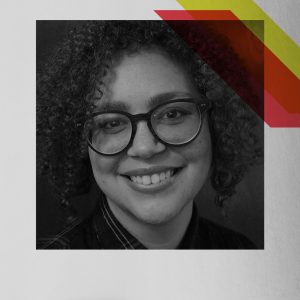
Alley Pezanoski-Browne
Alley Pezanoski-Browne has been a part of arts communities her whole life. Currently the Executive Director at IPRC (Independent Publishing Resource Center), she previously worked for a number of years as a documentary producer, before moving to communications, fundraising, and grant writing for arts non-profits.
She feels lucky to be from Milwaukee, Wisconsin, a city with a strong history of social justice activism, and to have the parents she has. Her parents were young, working class, first-generation college students when they had her, and an interracial couple. They brought her along to all the museums, galleries, concerts, movie theaters, and protests they went to. She went to her first protest at 8-years-old (to protest the first Gulf War with her mom) and started a Kids Save the Earth club around that time. She designed protest signs and posters for both these activities. Art and activism together are a part of her family lineage.
She loves strategizing and making ideas happen, which is what eventually led her to a career in project management and arts administration. Her greatest professional accomplishment comes in seeing artists produce work they’ve always wanted to create and knowing that she’s contributed to building space for them to do it! She’s excited about what she and her team at IPRC are building.
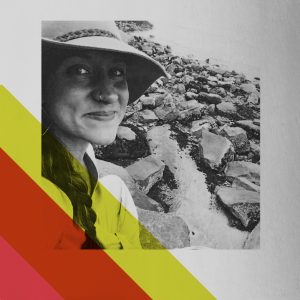
Haley Walker
Communications Director at The Freshwater Trust, Haley Walker is jack-of-all-trades communications professional. She starts with numbers and science, then and adds music, visuals, good writing, and personal stories to make them understandable and meaningful.
Walker discovered her love of telling stories and figuring out how to explain complex environmental issues to lay audiences while working as a fellow with Greenpeace in Washington DC. During her fellowship, the Deepwater Horizon oil spill happened off the coast of Florida, where she grew up. From this event, she realized how much the public turns to environmental organizations and the media to really communicate critical topics and issues. She started to grasp the critical role that communication plays in getting people to take action—whether that’s designing a beautiful infographic with stats that people can understand or whether that’s writing a story that explains very complex science topics in layman’s terms.
She gets a lot of inspiration from going out on the rivers where The Freshwater Trust works, seeing the difference their work is doing, and taking that back to her desk to explain what she felt or heard or saw to the donors who made it happen. She believes good writing and design can help bridge an important gap for people, allow them to feel more connected to an issue, and make them more willing to invest time, money, and heart.
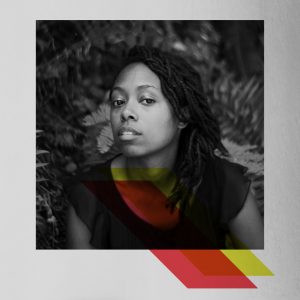
Intisar Abioto
Intisar Abioto is an artist, photographer, writer, dancer, researcher, thinker, wanderer… Someone who tries, and bit by bit accomplishes. She is the founder of The Black Portlanders, an ongoing photo essay that shares images and stories of the African-American experience in Portland. The daughter of artist parents, she has always been interested in arts and finding personally unique and interesting ways to do things.
Abioto finds inspiration from her dreams, storytelling, fantasy, black people, and in people who work to serve, invest in, and care for others while also being able to listen and question honestly with vulnerability and openness whether they are actually doing that. She describes her greatest accomplishment as the ongoing process of being an artist who dreams and sometimes fights to be herself and works hard to do the art that needs to come out of her and her communities.
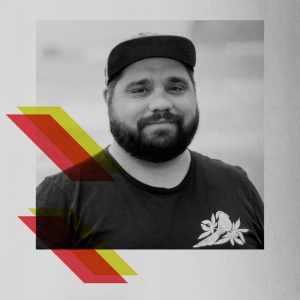
James Wilson
James Wilson originally went to school for photography but fell in love with design after taking a design exploration elective. He brings both skills to the table by using his own library of photos for projects and client work, volunteering his time at Visible as their event photographer, and working full-time as a designer at Coates Kokes, an agency focused on design for good work.
He first started using his talents for social change in college with student projects: a Portland Pride re-brand and a branding and experience project exploring catering Portland’s brewery scene to a queer audience. These projects got him craving more opportunities to apply his design and photography to work centered on a community he’s a part of. When he started as a designer at Coates Kokes, he immediately initiated connecting the agency with Visible as a studio partner. He describes design for good as designing with the idea of community in mind and looking outside of a straight/cis mindset to create work that can be relatable to all.
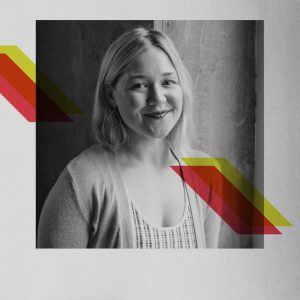
Sarah Leigh
Sarah Leigh had a career of serving, bartending, PR internships, freelance hustling, and in-house designing before landing her gig as a UX Designer at ThinkShout. UX is a happy place for her that combines research, collaboration, big teams, and lots of careful consideration for the user. She’s an empathetic person who loves people, learning, listening, and absorbing information; her friends call her “the sponge.” She takes inspiration for her work from just about anything, from Erykah Badu’s Instagram or an event at PICA to something she ate.
At ThinkShout, Leigh works with clients she describes as beyond amazing. When they take a voting rights case to the Supreme Court or take legal action against Trump, she can feel her heart bursting. To her, designing for good can look like many things, but is rooted in exercising responsibility. Some examples she gives are sourcing sustainable paper for a project, being mindful when curating inclusive stock photography, and looking at your own profession to do a better job of making it welcoming to people from all walks of life.